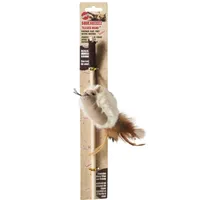Should you intervene if your cat catches a mouse? An expert weighs in
I’m a vet - here’s my advice on what to do if your cat catches a mouse or other wildlife.
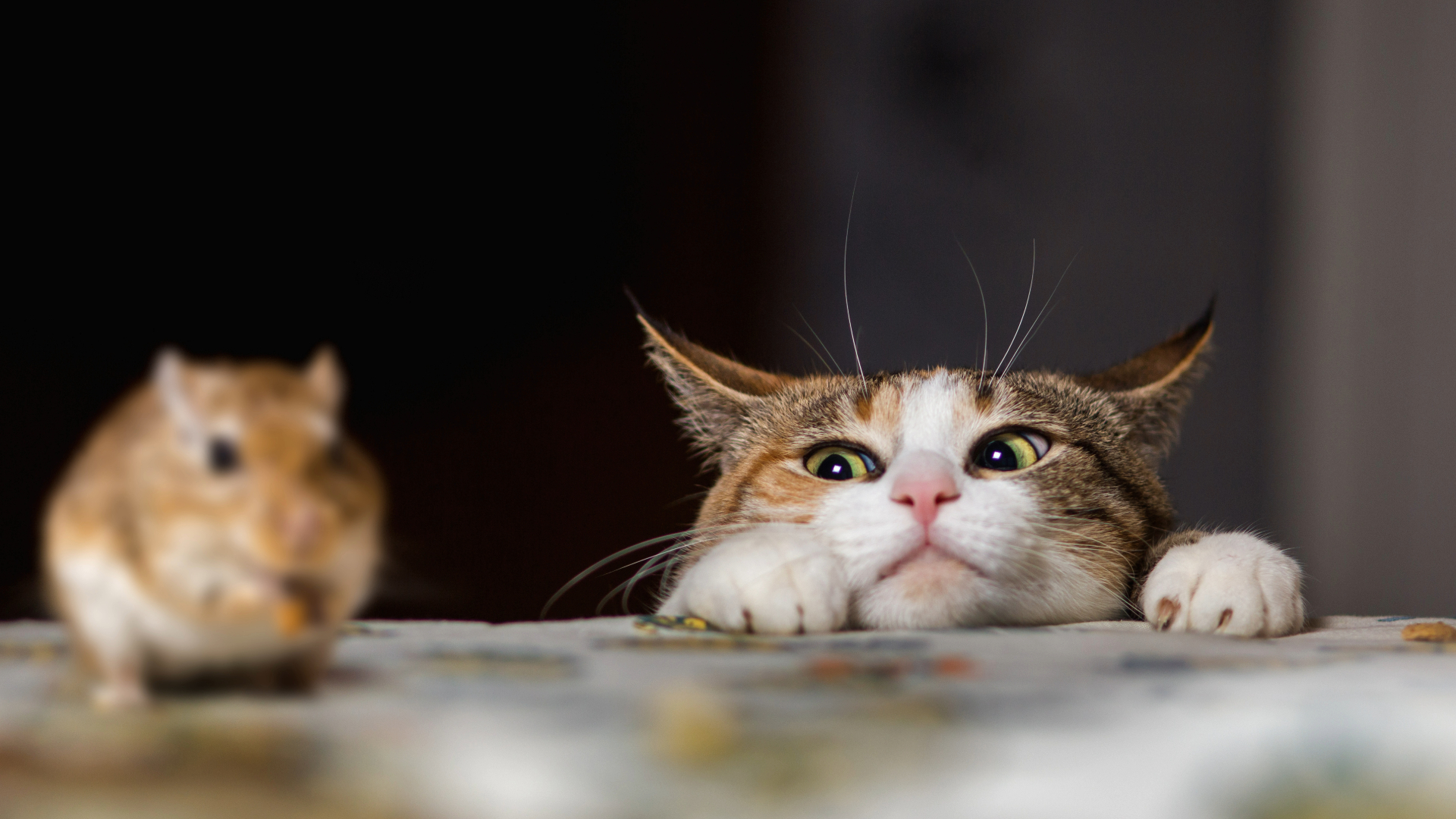
- Why do cats like to catch mice and birds?
- Should you intervene if your cat catches a mouse?
- How to intervene if your cat catches a mouse, bird, or other wildlife
- What should you do with the animal if it’s still alive?
- Should you discipline your cat for catching wildlife?
- Preventing cats from hunting wildlife
Get the best advice, tips and top tech for your beloved Pets
You are now subscribed
Your newsletter sign-up was successful
What should you do if your cat catches a mouse or a bird? Should you intervene, or not? As a cat owner, it’s best to be prepared for this eventuality. Even if your cat doesn’t seem to like hunting much, finding out what to do now will mean you’re ready to act when the time comes.
I’m a vet who used to work in a feline-only clinic, and I’ve also owned cats most of my life. I’ve been in this situation more than once. Although I don’t currently have a cat, my dog is quite happy catching the local wildlife, and I have to intervene often.
I’ll let you know what you can do to prevent cats from hunting quite so much (hint: regular play can help, so you might want to check out our article on the best cat toys). I’ll also cover why cats catch mice and birds (including whether cats eat mice) and explain if and how you should intervene and rescue wildlife that’s still alive.

Dr Joanna Woodnutt is an expert vet who previously worked in a feline-only practice. She enjoys helping pet owners with a variety of problems, including dermatology, nutrition and behavior, and has a passion for companion animal medicine. Jo has been writing about pet health for seven years and has been published in numerous online and print publications.
Why do cats like to catch mice and birds?
There’s no doubt that our cats are predators that once survived by hunting for food. But there’s a big difference between catching mice and birds to eat to survive and catching them when you’re well-fed. So why do our cats, who are often eating a complete and balanced diet twice a day, still hunt?
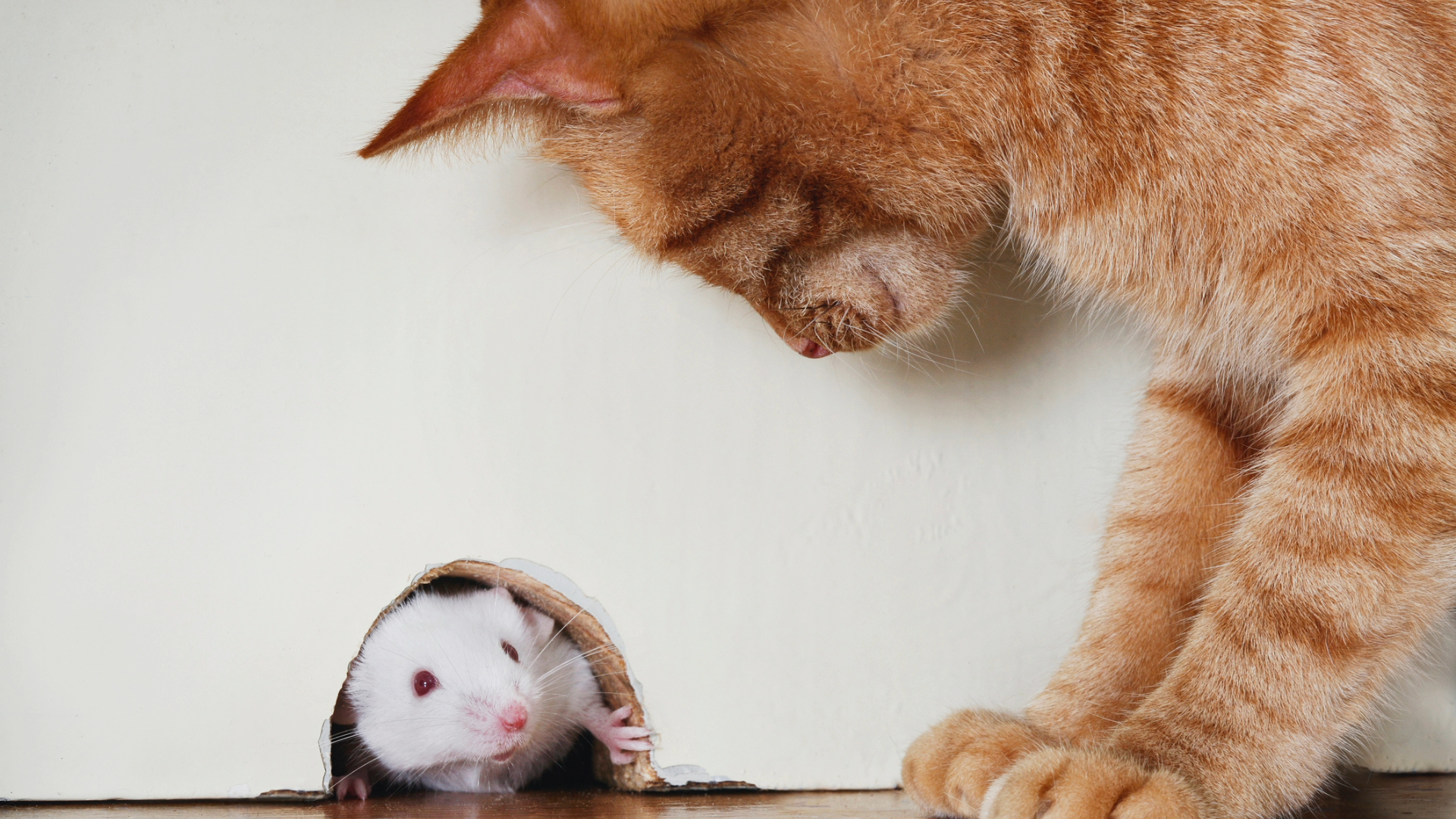
Well, there are several reasons. Firstly, the importance of instinct can’t be underrated. Hunting is an instinctive behavior – cats don’t reason whether or not they need to hunt, they just do it. This instinct has led to their survival as a species, and it’s only recently that it’s become less useful. Unless there’s a big evolutionary pressure to stop hunting, it’s probably not going anywhere anytime soon.
Then there’s breeding. The vast majority of cats in the world are mixed breed – what we call ‘domestic shorthairs’. And these cats will have been ‘kept’ by humans for a long time as pest controllers. The good hunters would have received treats and even shelter, so were more likely to survive.
This means it’s not just a wild instinct to hunt – it’s also a behavior we’ve encouraged over hundreds of years of cat company. If your cat is purebred, their family probably stopped having to hunt for a living a long time ago, and they’re less likely to have strong hunting instincts. On the other hand, kittens born to ‘barn cats’ and feral cats are likely to have a high catch rate.
Get the best advice, tips and top tech for your beloved Pets
Another point to consider is that hunting is entertaining. Wild cats spend huge amounts of time hunting – it takes up most of their day. Our companion cats, in contrast, get bored. Some cats hunt and catch wildlife to relieve this boredom. If you’re out a lot or your cat doesn’t get entertained at home, it’s quite likely boredom has something to do with it. Is your cat bored? You might find this article useful.
Ethical Pet Squeakeeez Plush Mouse Teaser Wand Cat Toy with Catnip, Assorted
Wand toys like this one enable you to keep your hands well away from your cat while encouraging them to use their natural hunting instincts. They can play in the air or on the ground, depending on their preference. This toy also contains catnip, which might help some cats relax and play.
A recent study, published in the Journal of Current Biology, suggested that cats hunt more on low-protein diets than they do on high-protein diets, meaning there might be a nutrition perspective to cats catching mice. Perhaps cat’s brains are programmed to carry on hunting until they’ve filled their protein quota. Even though they’re receiving two good meals a day, they don’t feel satisfied until they’ve had enough protein. Or maybe hunting fills nutritional deficiencies we aren’t aware of.
Whatever the reason for cat hunting, it’s annoying – especially if your beloved cat catches a mouse and brings it inside!
Should you intervene if your cat catches a mouse?
So now we come to the key question – what should you do if your cat catches a mouse or other wildlife? Should you intervene? What if it’s still alive?
There’s no right answer to this sort of question. Some people will say ‘let nature be’, and leave the cat alone to enjoy its meal. Others will feel that’s cruel, especially as cats often play with their prey (for more information on this, see our article on ‘why do cats play with their prey?’).
I’m in the intervene camp. If I find a cat playing with a live animal, I intervene, with a few exceptions I’ll come onto in a moment. As a vet, I promised to put animal welfare first. Sometimes that means rescuing something that’s being tormented by my cat (or dog!) because that animal must be feeling extremely stressed and may be in physical pain.
I also try to protect the environment when I can and one study, published in the Journal of Natural Communications, estimates that cats cause 26 billion wildlife deaths in the US each year. I feel better if I rescue the ones I can. There’s also a practical element – if my pet gets distracted before the prey is dead, they might escape into my house. And I prefer my wildlife in the wild!
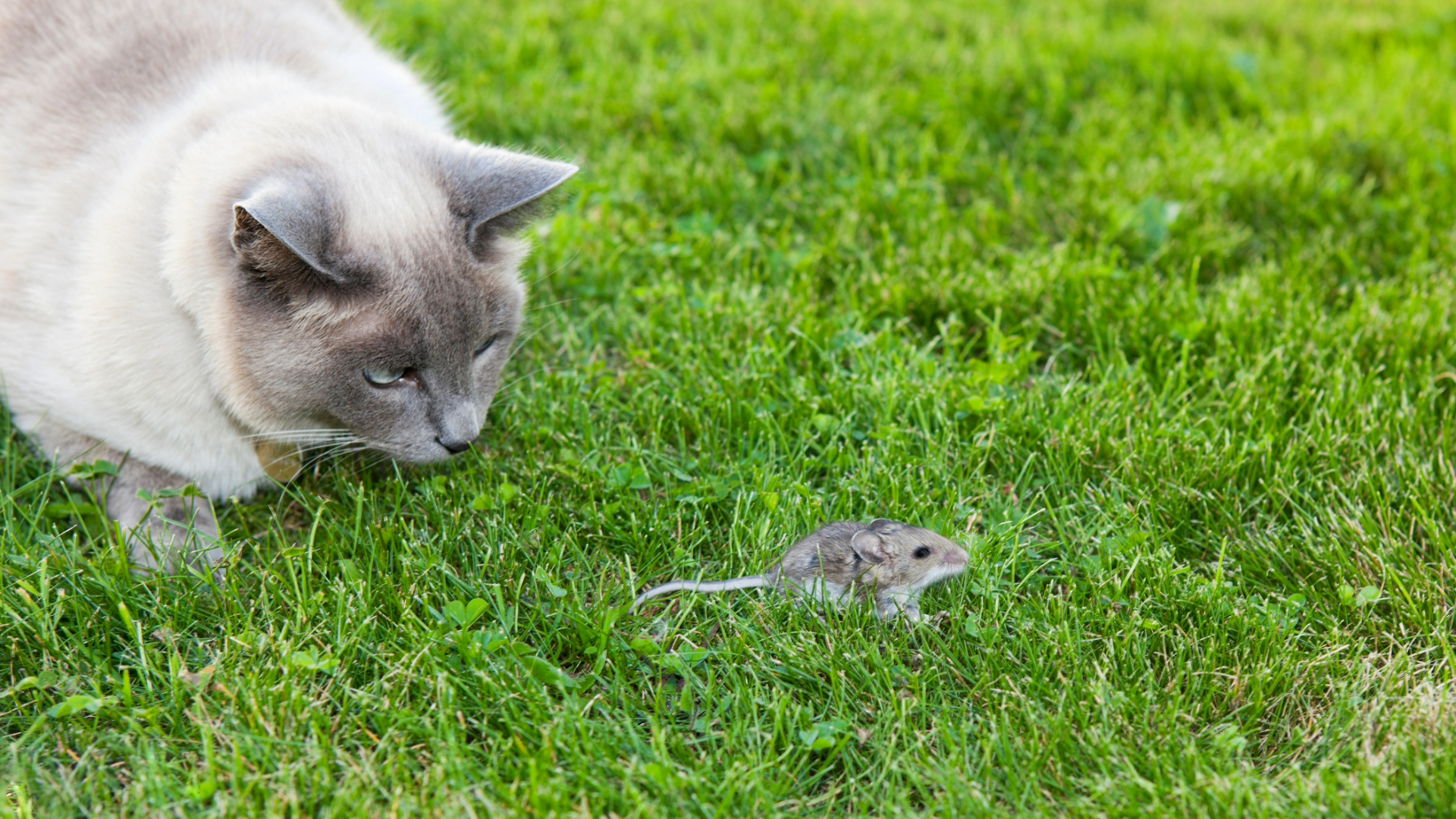
How to intervene if your cat catches a mouse, bird, or other wildlife
Let’s look at what to do if your cat catches a mouse, and look in more detail at the exceptions to the rule that intervening is ok.
Of course, your cat might not take kindly to you removing their entertainment/meal. You should only intervene if you can do so safely, without being scratched or bitten by your cat. Don’t forget that frightened wildlife can bite and scratch too – wearing gardening gloves (long ones if you can!) is a good way to protect yourself. This is especially important in countries where wildlife carries rabies – do not intervene if there’s any chance that you could get bitten.
If you’re indoors, it’s best to catch the animal while your cat still has it cornered. If you remove your cat from the area first, this may allow the prey to escape and hide inside the house. Place a plastic tub over the animal, and slide a piece of stiff card beneath it to trap it inside. As you lift, gently turn the tub over so that the card is on top. This reduces the chance of escape.
If you have no tub available, a cardboard box will do, but it’s easier if your tub is see-through as it allows you to inspect the trapped animal safely. If you don’t have any sort of tub or basket, you could gently but firmly close a gloved hand over them, but this is riskier, both for the animal and for you!
If you’re outside, you can pick your cat up and shut them away before returning to inspect the animal.
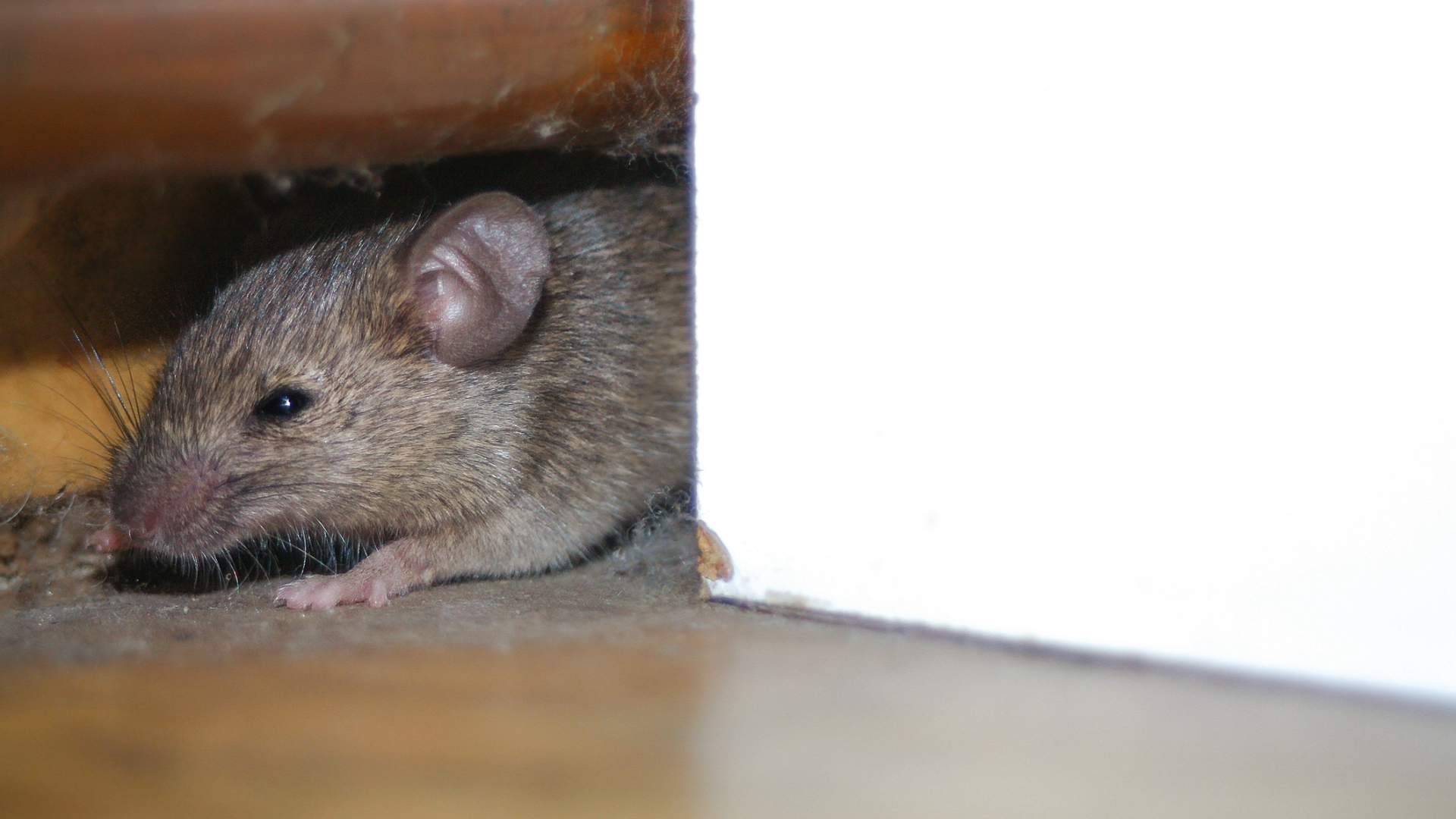
What should you do with the animal if it’s still alive?
If the animal is still alive, try to inspect it for any obvious wounds. If you can see blood or injuries, you’ll need to take the animal to a vet for treatment.
There’s a myth that vets only euthanize wildlife, not treat them. This isn’t true, but it is the most common outcome. Wildlife is wild, and it usually isn’t fair to keep them hospitalized for treatment due to the stress they may feel. In some cases, releasing them back into the wild can also be problematic because of laws or territorial behaviors.
In addition, cats sometimes catch weakened animals that are already ill – those illnesses may mean treatment of even mild wounds is unethical. Rest assured though that vets will rehabilitate the animal if they can. If they can’t, they’ll euthanize it – a far less painful way to go than death by cat!
If you can’t see any obvious wounds, put the box containing the animal on its side under a bush, and keep your cat away for several hours. The animal will likely need some time to recover from the stress before disappearing back into the undergrowth. Don’t forget to check the box before you let your cat back out again, in case the animal hasn’t moved – if that’s the case, it’s time to take the prey to the vet for care.
Should you discipline your cat for catching wildlife?
You shouldn’t discipline your cat for catching a mouse, or any other wildlife. While we may not like it, they’re only doing what comes naturally to them. In addition, discipline is unlikely to be effective – your cat won’t know what the discipline is for and raised voices or aggressive behaviors will harm your relationship with your cat.
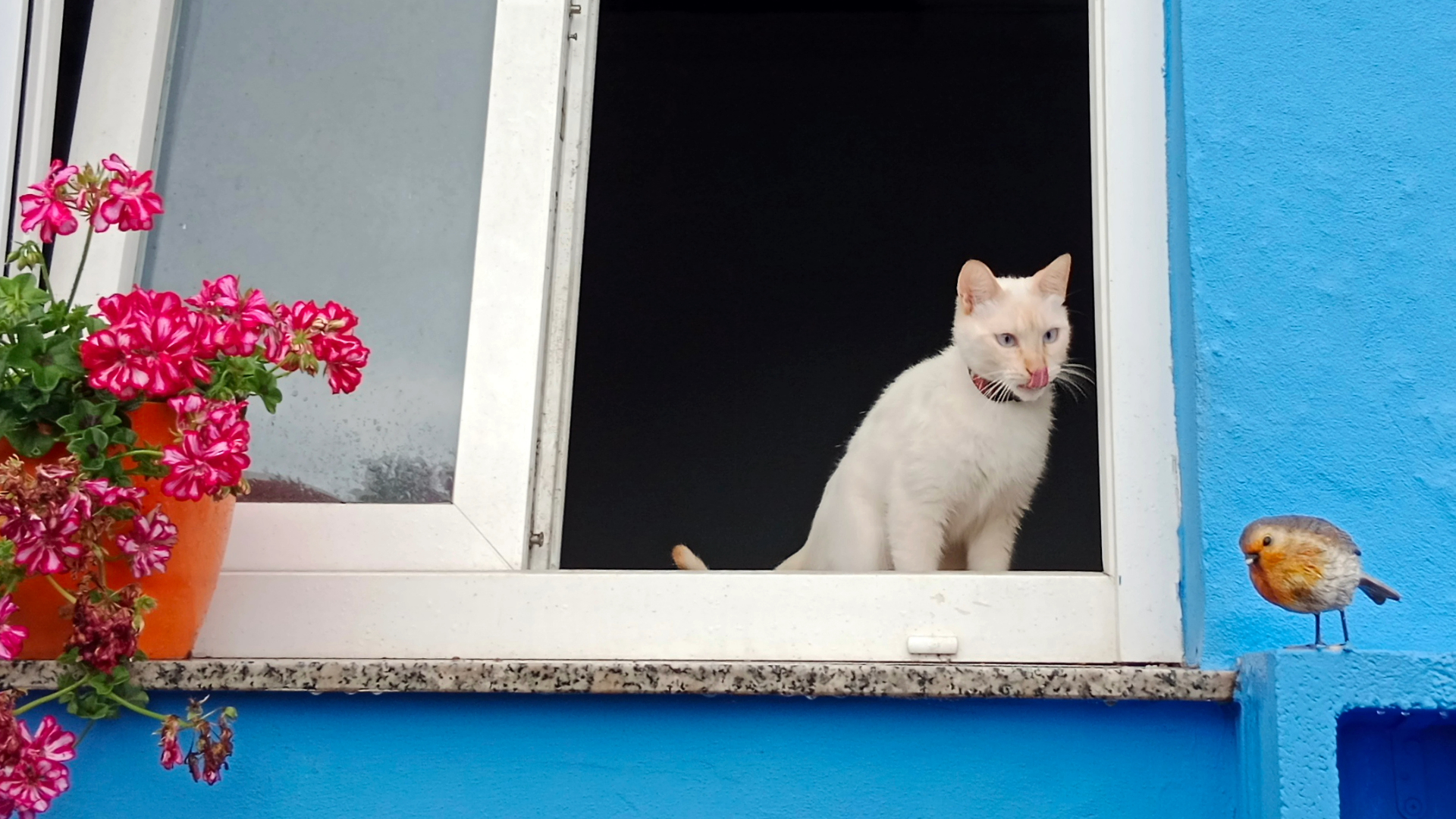
Preventing cats from hunting wildlife
If your cat seems to enjoy hunting wildlife, there are some things you can do to prevent it. According to a recent study published in the Journal of Current Biology, feeding a high-meat protein, grain-free cat food reduced the number of animals brought home by cats by 36%.
They also found that engaging in 5-10 minutes of play each day with your cat reduced the catch rate by 25%. Contrary to popular belief, bells on the collar had no effect on the animal numbers cats brought home, but special collar covers reduced the number of birds brought home by 42%.
Enjoyed this article and want more information about playing with your cat? We uncover the importance of cat play, and how to stop play aggression.
Birdsbesafe Cat Collar Cover for Birds
Want to stop your cat from catching birds? These colorful collar covers will do the trick. The vibrant patterns are hard to miss, making it easier for birds to spot your cat.
After graduating as a vet from the University of Nottingham in 2016, Dr. Joanna Woodnutt went on to practice companion animal medicine in the Midlands. She quickly developed a love of consulting and helping clients with medical problems such as dermatology, behavior and nutrition - anything that involved helping clients understand their pets better.
Jo started writing about pet health in 2017, realizing that it meant she could help even more pet parents. Since then, she has written for countless online and print publications and is a regular contributor for Edition Dog Magazine. Jo is the director of The Veterinary Content Company, which she founded in 2020. She is also the founder of Petlearnia, a platform that provides pet e-learning courses for pet parents.
Jo now lives in the Channel Islands with her husband Ian and terrier Pixie.
